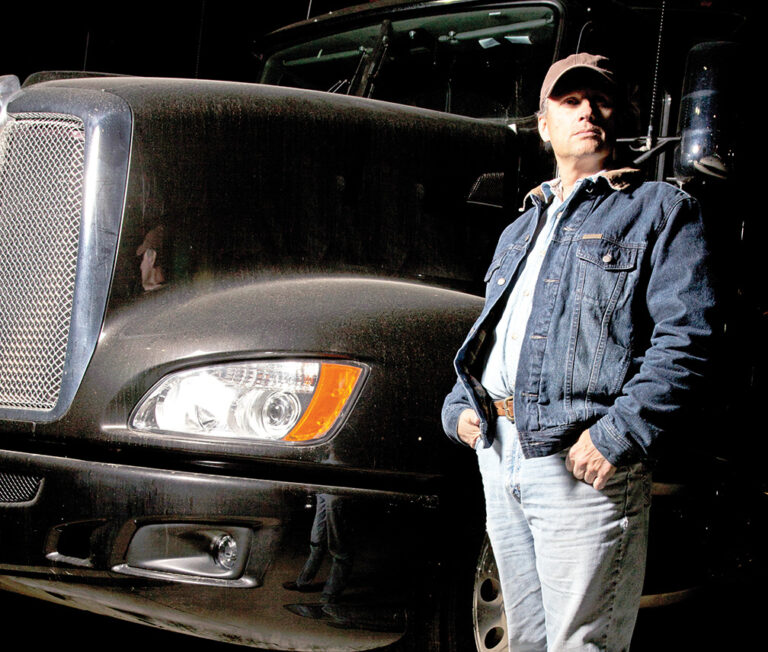Trucking can be a hazardous job, both on and off the road. Many drivers are exposed to dangers after they leave the cab. Drivers often have little control over where they are sent to pick up or deliver, and can easily find themselves driving, loading and unloading in high-crime areas.
This doesn’t mean that drivers are destined to become victims of criminal activity. A few precautions can go a long way toward staying out of trouble.
Whenever the subject of personal protection comes up, the discussion often turns to weapons. While traveling with a weapon of any sort is a personal choice for each driver — depending on company and state regulations — the use of a weapon should always be a last resort. In some jurisdictions, mere possession of a firearm can result in a jail term, and even defense items such as pepper spray can be classified as illegal weapons.
The best defense is to avoid situations where a weapon might be used. That begins with awareness.
First, forget about any perceptions of “good” or “bad” areas. Criminals can be anywhere. Places that attract a lot of truck traffic will attract both legal and illegal activities. Be on guard for trouble, no matter where you are.
There are common-sense guidelines for crime prevention that anyone can follow. One is to choose well-lit areas after dark, both for parking and for walking to stores, showers and so forth. Criminals prefer darkness because it’s easier to approach a victim and to get away after an incident. The back row of the truck stop parking lot may be quieter — but it might also be darker, and your walk to and from the store is farther.
Stay alert and aware when getting out of your truck. Always look around carefully, and check your mirrors, before unlocking the door. If you’re performing a pre-trip inspection or checking something on your vehicle, don’t get so absorbed that you don’t scan your surroundings. If you’re walking, scan the area as you go. Leave your cellphone in your pocket or, even better, set up a one-button call to 911 and be ready to use it. Wait to read any messages until you’re inside the store or back in your truck.
Walk briskly, continually scanning the area. Choose the most direct route to your destination unless it takes you into a secluded area. Walking in the narrow area between trailers leaves you vulnerable, so choose more open areas if possible. Watch where you’re walking, too, so you aren’t tripped up by a hazard in your path.
If you’re approached, don’t let your guard down, no matter how friendly or needy the person appears to be. Criminals often gain the confidence of their victims by pretending to be victims themselves. A plea for a few dollars can quickly turn into a demand for much more. Politely but firmly inform anyone who approaches that you don’t want to be talked to. If necessary, get loud. The attention you draw in a dangerous situation far outweighs the potential embarrassment of being wrong.
To that effect, personal alarms can be an effective deterrent. If you have a “panic button” on your key fob, that’s another option. If anyone tries to assault or rob you, the more attention you draw from bystanders the better.
Have a defensive plan in case you are attacked. Some people carry keys in their hand for use in scratching or cutting an attacker. Keychains are available with a kubotan (a pen-shaped device with a point on the end that can be used for stabbing) attached. Another version of this comes in the form of a “tactical pen,” a writing instrument that has a hardened case that can be used for defense. These devices sometimes include small divots that collect DNA evidence when a person is struck.
Sometimes it’s better to give in to demands for money or possessions to avoid being hurt, or worse. No one wants to lose valuable property or cash, but loved ones would much rather have you home safely than see you harmed trying to protect a few dollars.
One effective way to increase safety is to buddy up. Criminals often look for a lone person but will normally leave groups of two or more alone. Some truck stops will provide an escort to your truck if you ask.
While inside your truck, make it a habit to keep the doors locked at all times. Some drivers use straps to tie the driver and passenger doors together in case the lock is defeated. Keep curtains closed so thieves can’t see in.
If someone does attempt a break-in, you have options for defense. A blast of fire retardant from your extinguisher is a strong deterrent, and an air horn is loud enough to attract attention. A rap on the knuckles from a tire thumper or other tool encourages others to keep their hands outside.
In some cases, thieves may be after your cargo rather than your personal belongings. If you think someone is breaking into your trailer, don’t walk back and confront them alone. You may be out of view for others who could help you, and you could be surprised by a group of criminals acting together. Call the police and use your air horn, if necessary, to attract the attention of others. No load of freight is worth your life, so think carefully before you confront thieves.
Finally, if you’re the victim of a crime, every detail you can provide to the police will help their investigation. Try to remember details such as physical descriptions, clothing, shoes and so on. Photos of criminals, vehicles they used or other information could be very helpful.
One of the great things about trucking is that there’s always something new over the next hill or around the next curve. It’s unfortunate that new situations sometimes connect us with people who have bad intentions. By staying alert and preparing for danger, you can help minimize the chances of finding yourself in a bad situation.
Cliff Abbott is an experienced commercial vehicle driver and owner-operator who still holds a CDL in his home state of Alabama. In nearly 40 years in trucking, he’s been an instructor and trainer and has managed safety and recruiting operations for several carriers. Having never lost his love of the road, Cliff has written a book and hundreds of songs and has been writing for The Trucker for more than a decade.











